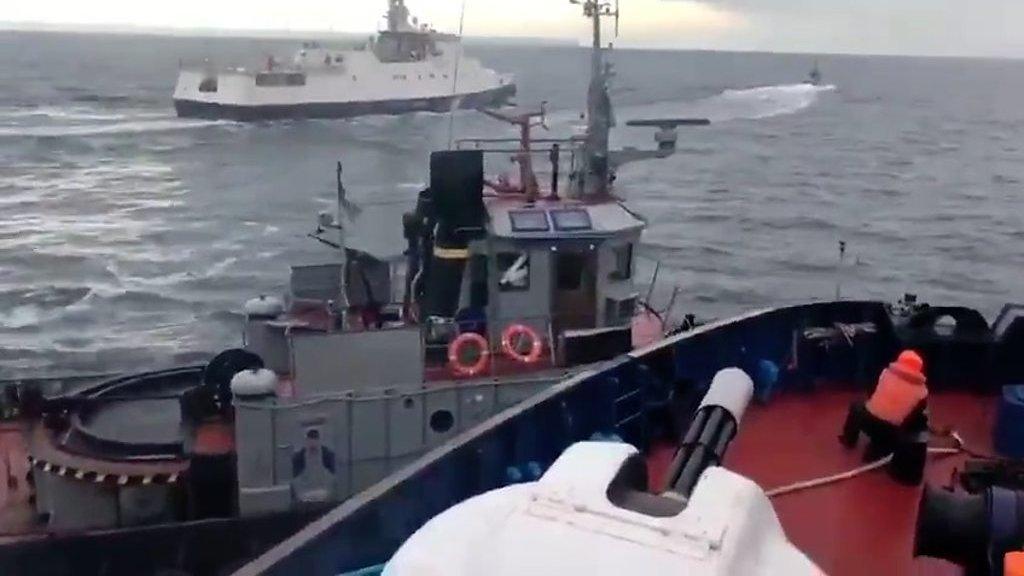Ukraine-Russia sea clash: Poroshenko urges Nato to send ships
- Published
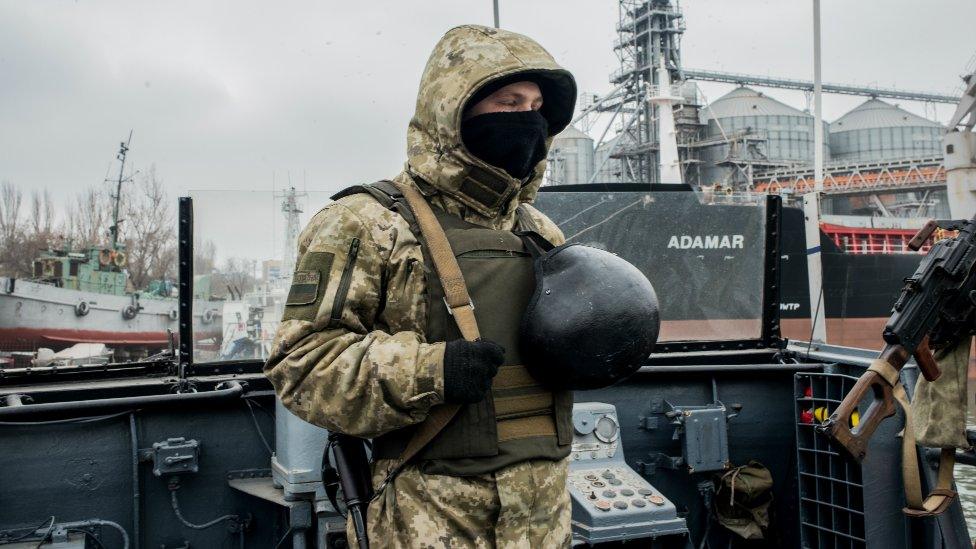
Ukrainian forces have been mobilised in the port of Mariupol on the Sea of Azov
Ukrainian President Petro Poroshenko has urged Nato to send ships to the Sea of Azov following a naval confrontation with Russia off Crimea.
He told Germany's Bild newspaper he hoped the ships could be relocated "to assist Ukraine and provide security".
On Sunday, Russia opened fire on three Ukrainian ships and seized their crews in the Kerch Strait between the Black Sea and the Sea of Azov.
Nato has expressed "full support" for Ukraine, which is not a member state.
Amid worsening relations on Wednesday, Russian President Vladimir Putin accused Mr Poroshenko of creating the naval "provocation" to boost his ratings ahead of 2019 elections.
President Poroshenko has implemented martial law across Ukraine's border regions for 30 days in response to the crisis.
What did Poroshenko say?
In the interview with Bild, external, Mr Poroshenko said Vladimir Putin wanted "nothing less than to occupy the [Azov] sea".
"Germany is one of our closest allies and we hope that states within Nato are now ready to relocate naval ships to the Sea of Azov in order to assist Ukraine and provide security," he said.
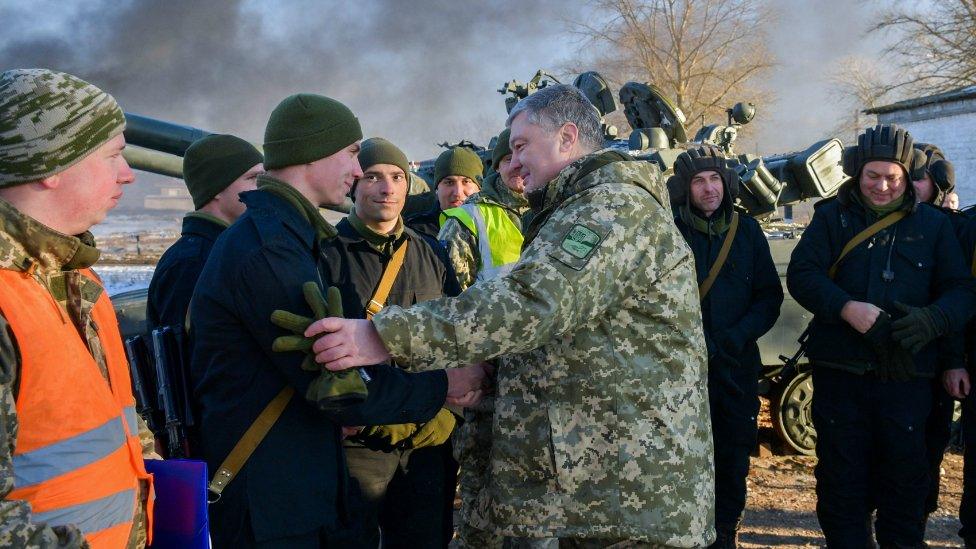
President Poroshenko inspected tank crews during a visit to Chernihiv, northern Ukraine
"We cannot accept this aggressive policy of Russia. First it was Crimea, then eastern Ukraine, now he wants the Sea of Azov. Germany, too, has to ask itself: What will Putin do next if we do not stop him?"
A Nato spokeswoman would not comment directly on Mr Poroshenko's request, but stressed that "since Russia's illegal annexation of Crimea in 2014, Nato has substantially increased its presence in the Black Sea."
Earlier this week, Nato chief Jens Stoltenberg called on Russia to free the Ukrainian ships and sailors, external and said the bloc would continue to provide "political and practical support" to Ukraine, which is a Nato partner country, external.

'Hardly likely'
Analysis by Jonathan Marcus, BBC Diplomatic correspondent
The call for Nato to deploy warships to the Sea of Azov raises a variety of diplomatic and practical problems.
In strict legal terms Russia and Ukraine share access to its waters under a 2003 treaty. This though specifically states that warships from third countries can only enter the Sea or make port visits there with the express permission of the other party.
Russia is hardly likely to give such permission. In practical terms it could easily block the Kerch Strait as it did earlier this week by placing a merchant vessel across the channel.
Nato in any case might see such a visit as more likely to inflame tensions.
It's more likely that Nato might seek to boost its naval deployments to the Black Sea where its members - Bulgaria, Romania and Turkey - are uneasy about Russia's more assertive behaviour.
Indeed the alliance says that its vessels have already spent some 120 days on patrol or exercises in the Black Sea this year, compared with 80 in 2017.

What happened off Crimea?
At least three Ukrainian sailors were wounded when Russian FSB border guards opened fire on two Ukrainian gunboats and a tug off Crimea.
The peninsula was annexed by Russia in 2014, but officially remains part of Ukraine.
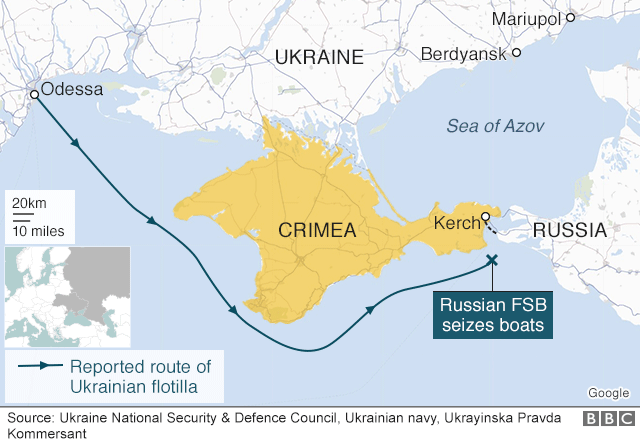
The naval boats had been sailing from Odessa to Mariupol, a Ukrainian port on the Azov sea, when they were confronted by the FSB vessels.
Ukraine says Russia is deliberately blockading Mariupol and another port, Berdyansk, preventing ships from getting through the Kerch Strait.
The 24 captured Ukrainian sailors have now been given two months in pre-trial detention by a court in Crimea.
Russia's decision to open a bridge across the Kerch Strait earlier this year had already exacerbated tensions.
What did Putin say?
The Russian president said the incident was "undoubtedly a provocation".
He said that it had been organised by Ukraine's authorities "and, I think, the incumbent president in the run-up to the Ukrainian presidential election in March 2019".
Mr Poroshenko has low popularity ratings. Recent polls suggest that only about 10% of the electorate plans to vote for him next year, with nearly 50% saying they would not vote for him under any circumstances, the Kyiv Post newspaper reported.
Why tensions between Russia and Ukraine are so high
Mr Putin added that the Ukrainian president's decision to impose martial law after a mere "border incident" was extreme, because martial law was not even imposed at the height of the conflict with pro-Russian separatists in eastern Ukraine in 2014.
Mr Putin insisted that Russia's military response was appropriate as the Ukrainians had "trespassed" into Russia's territorial waters.
Ukrainian officials published a map on Wednesday, external, placing all three Ukrainian boats just outside Crimea's territorial waters at the time they were seized.
What other reaction has there been?
Western governments have backed the Ukrainian government.
On Wednesday the EU strongly condemned Russia's actions but failed to agree on new sanctions against Russia.
After three days of debate, the EU issued a statement expressing "utmost concern about the dangerous increase of tensions" and dismay at the "unacceptable" use of force by Russia.
It called on Russia to release the ships and their crews and respect Ukraine's sovereignty. Poland had wanted new sanctions on Moscow while Germany and France stressed the need to ease tensions.
US President Donald Trump has also said he may cancel a planned meeting with Mr Putin on the sidelines of the G20 summit in Buenos Aires later this week.
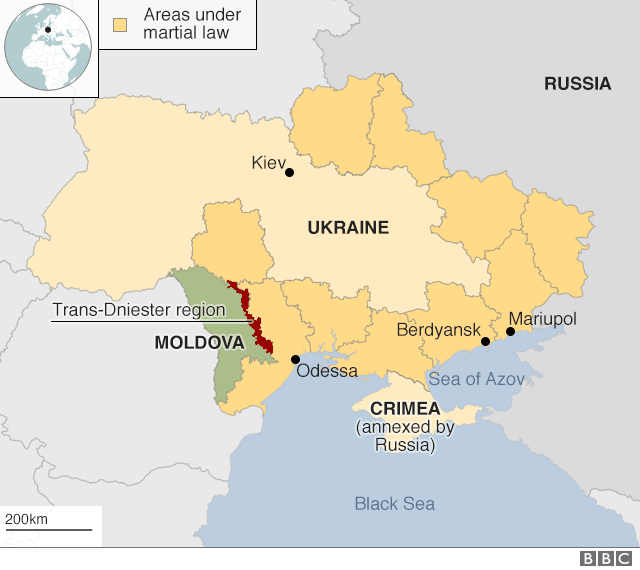
- Published28 November 2018
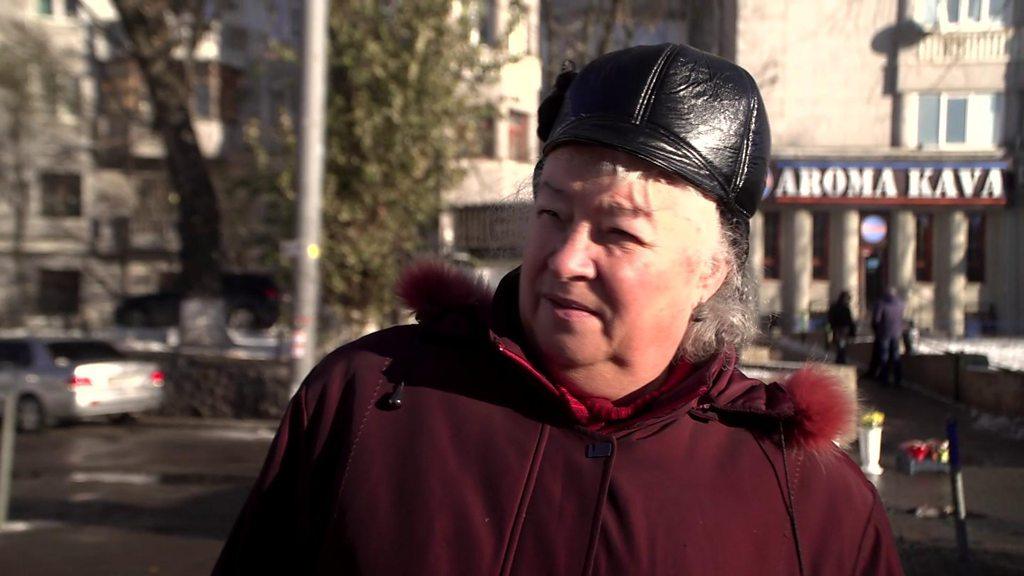
- Published27 November 2018
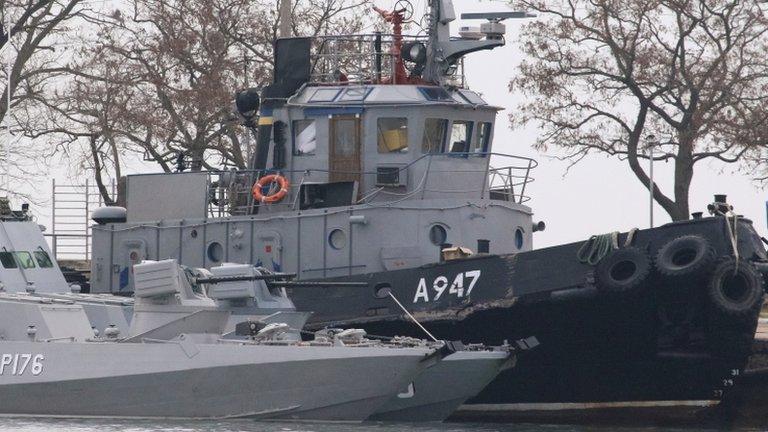
- Published26 November 2018
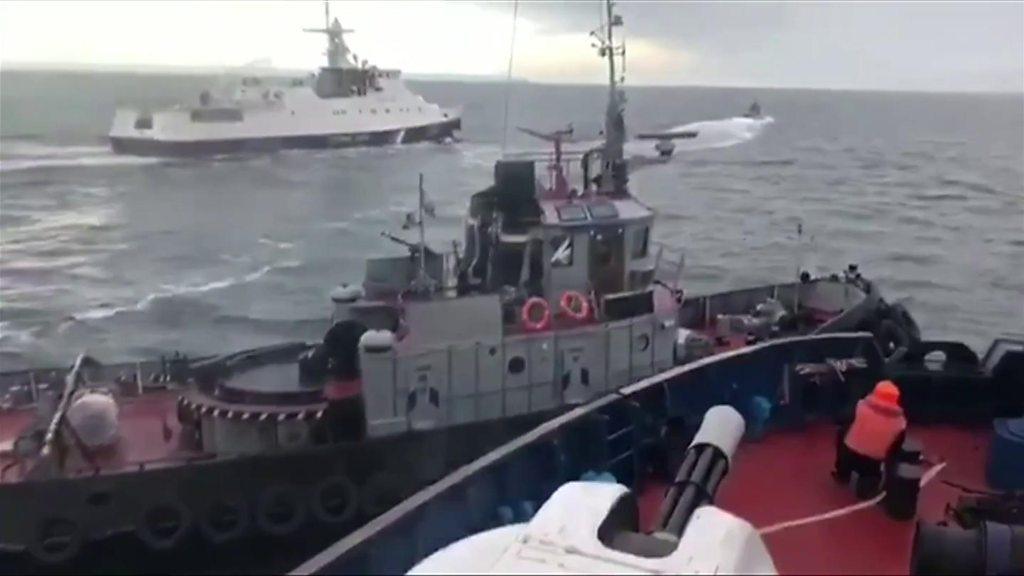
- Published27 November 2018
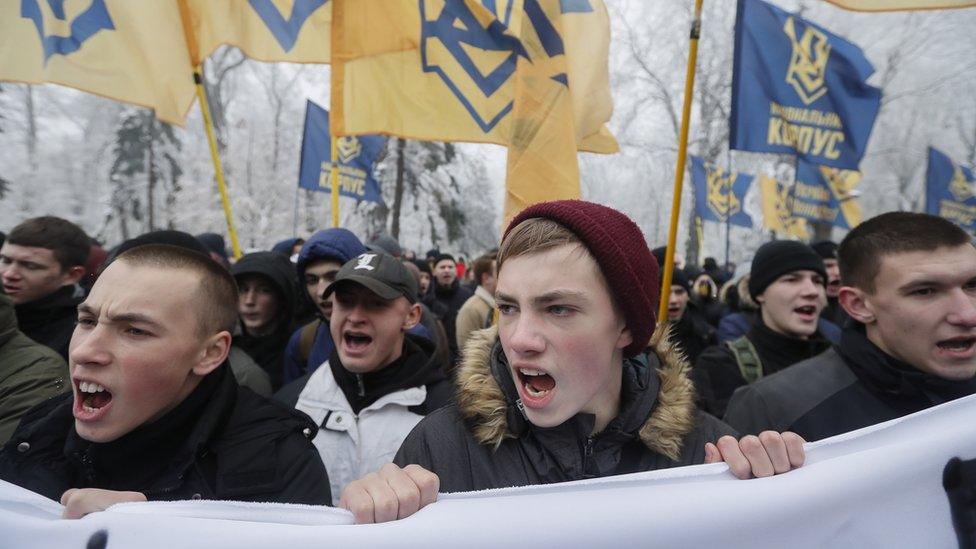
- Published26 November 2018
